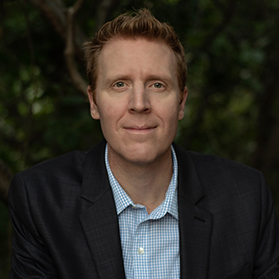Affair Recovery
Find Hope and Rebuild Trust. Your Journey to Healing Starts Here. In-Person & Online Therapy Available.
 Uncovering an affair is one of the hardest things you could ever do. Your entire world has just been flipped upside down, and you don’t know which way is up. How could this have happened to you? What does this mean? How do you know what you can trust?
Uncovering an affair is one of the hardest things you could ever do. Your entire world has just been flipped upside down, and you don’t know which way is up. How could this have happened to you? What does this mean? How do you know what you can trust?
Learning that your partner has betrayed you is devastating. You don’t know if healing is even possible and if it is you have no clue about how to get started. Knowing that you have betrayed your partner and seeing how much pain you have caused can be just as challenging for those involved in an affair.
Healing from affairs and rebuilding trust in your partner is possible. Douglas Counseling has been helping couples and individuals navigate affair recovery in Oregon for years. We provide ongoing support, expert guidance, and practical resources couples need to navigate this difficult time in their lives.
What Counts as an Affair?
Affairs contain at least one of the following three elements:
- An outside emotional relationship
- Dishonesty
- A sexual relationship
Some affairs may contain just one of the above elements, a combination of two elements, and others may contain all three.
An outside emotional relationship is often the starting point in many affairs. People allow themselves to become emotionally engaged which often triggers feelings that grow over time.
Dishonesty and omission are almost always involved in an affair. You (or your partner) take actions that you know would not be approved of by your partner, so you keep your actions hidden. The secrecy involved in affairs severs the trust we previously had in our partners.
A sexual relationship is not always needed for an affair as many affairs are more emotional in nature. Affairs that involve sexual relationships are often more challenging for partners to recover from as many people view having sex with another partner as the ultimate betrayal.
Warning Signs of an Affair
Most affairs contain warning signs that the injured partner simply missed. After reflecting back partners often connect the dots and see many warning signs that their partner was involved in an affair. The following list includes many of the common warning signs of an affair.
- Your partner seems increasingly more distant emotionally
- Your partner’s schedule or routine changes
- Your partner is spending more time on their phone
- Your partner is hiding their phone from you or keeping it face down
- Your partner avoids answering questions directly
- Your partner pays more attention to their appearance when they previously have not
- Your partner takes up new hobbies that they have never expressed interest in before
- Your partner attempts to hide their credit card statements
If you have recently discovered an affair, reaching out for help now can save your relationship and put you on the path towards recovery. Douglas Counseling is Accepting New Clients, and we are happy to match you with one of our therapists specializing in affair recovery. Please call our office at (503) 388-6611 or fill out the contact form.
Client Testimonial:
Bernard and Michelle started therapy 2 weeks after Michelle learned about Bernard’s recent affair. The couple didn’t know whether their 15-year relationship would survive. Their therapist worked with them to stabilize emotions, rebuild self-esteem, and find solid footing to begin the healing process.
This couple worked with their therapist for a total of 6 months with a focus on understanding the many reasons the affair had taken place. The couple examined what this choice was about for Bernard, uncovered areas in the relationship to strengthen, and learned about how to build confidence that this would not happen again. Both partners fully committed to the therapy process, and each reported at the end of therapy that they believe their relationship would never have worked if they hadn’t sought out professional help.
Bernard said, “I honesty had no idea how to work with Michelle when she felt scared.” “Our therapist gave me specific mindsets and tools that gave me the confidence to lean in and change our dynamic.”
Read more Client Reviews here.
Types of Affairs
Emotional Affairs:
Emotional affairs are often defined by the nature of the relationship being centered on an emotional connection. Almost all affairs have some element of emotional connection. This connection may or may not be rooted in a romantic connection. Most emotional affairs include ongoing communication between two people and can take place in-person, online, or by text.
Physical Affairs:
Physical affairs include some form of physical contact between the involved partners. This contact could be holding hands, kissing, sexual touching or sexual intercourse. Physical affairs can exist in many different forms and may not include an emotional connection. Types of strictly physical affairs could include one-night stands, happy endings at massage parlors, and paid sex.
Online Affairs:
Online affairs are conducted virtually and can include partners connecting through videos, chat rooms, social media, email, dating apps, and more. Online affairs often take place with partners never actually meeting in-person, yet some affairs that start online lead to partners meeting in person.
Many people debate which type of affair is more serious or harder to recover from. Often people report that physical affairs, especially ones where sex has taken place, are more challenging to recover from. This is all subjective as each person must make their own judgement about how they view affairs, and the type of transgression involved.
The Impact of Infidelity
 Infidelity has massive impacts on everyone involved. The relationship is now void of trust which leads to partners feeling unsafe, insecure, and uncertain about the future. Healthy relationships rely on a baseline level of trust that allows partners to feel safe and confident that their bond is secure. Affairs deliver a crushing blow to his level of trust and leave partners questioning whether they can ever feel safe in their relationship again.
Infidelity has massive impacts on everyone involved. The relationship is now void of trust which leads to partners feeling unsafe, insecure, and uncertain about the future. Healthy relationships rely on a baseline level of trust that allows partners to feel safe and confident that their bond is secure. Affairs deliver a crushing blow to his level of trust and leave partners questioning whether they can ever feel safe in their relationship again.
Affairs also have huge impacts on the individuals involved as the injured partner is reeling from the news that they have been betrayed and the involved partner is struggling to deal with the pain they have inflicted on their spouse.
Injured partners (the spouse that has been betrayed) deal with feelings of fear, mistrust, hurt, anger, resentment, and shame.
Involved partners (the spouse that cheated) deal with feelings of guilt, remorse, worthlessness, and uncertainty.
Starting the Road to Recovery
If you have just uncovered or disclosed an affair, you have just started a ride on an emotional roller coaster. While affairs are extremely traumatic, they don’t have to spell the end of your relationship. By working with an Affair Recovery specialist, you can get the knowledge, insights, strategies, and coaching that can set you on the path of recovery.
Recovery has Two Sides
The road to recovering from an affair must include two distinct areas. There is Personal Recovery, and there is Relationship Recovery.
Personal recovery must take place regardless of whether the relationship survives. Recovering personally allows you to move forward as a whole and healthy individual and sets the stage for possible relationship recovery.
Relationship recovery includes working on gaining perspective, understanding, and making the choice to move forward in an open and honest way that leads to a closer bond. Affair Recovery counseling helps couples heal their relationships, build trust, and increase intimacy.
The Benefits of Infidelity Counseling
One of the main benefits from infidelity counseling is receiving expert guidance as you navigate healing from the betrayal. Most couples attempt to heal on their own without professional help and this often leads to a lack of healing and ongoing relationship distress. Therapy for infidelity gives couples the chance to rebuild their connection and achieve even greater levels of intimacy.
Other benefits include a better understanding of yourselves and your relationship dynamics. Many couples who enter counseling have a deeper knowledge of why they have previously struggled in their relationship and acquire new mindsets and skills.
Another benefit is learning a new process for navigating the challenging conversations affairs bring on. Couples learn how to speak out from a place of openness, listen from a place of curiosity, and give feedback that shapes their relationship in a new direction.
The Key to Success
To recover from the extreme trauma of an affair, you need to find expert help. There is a lot of misinformation out there about how to recover from an affair, and much of it comes from uninformed therapists. By working with an experienced therapist with a proven track record for helping couples recover, you give yourself the best chance to rebuild your relationship.
Our Approach to Affair Recovery
 Our therapists have had years of experience working with couples dealing with affairs. We draw from a number of therapy models including EFT (Emotionally Focused Therapy), RLT (Relational Life Therapy) and other specialized models that focus on healing from betrayals. Your therapist will walk you through the healing process step-by-step to ensure you stay on the path to recovery.
Our therapists have had years of experience working with couples dealing with affairs. We draw from a number of therapy models including EFT (Emotionally Focused Therapy), RLT (Relational Life Therapy) and other specialized models that focus on healing from betrayals. Your therapist will walk you through the healing process step-by-step to ensure you stay on the path to recovery.
We know how difficult it is to reach out for help when dealing with infidelity. Our approach is completely confidential as your privacy is a top priority. Seeking help for an affair is challenging enough and many people feel ashamed to admit that they are dealing with the fallout of an affair. Douglas Counseling provides a judgement-free zone for couples and individuals healing from affairs.
If you have just discovered an affair in your relationship and want expert help, please call Douglas Counseling at (503) 388-6611 and set up an initial phone consultation. We can then start the road to recovery.
Our Oregon Therapists for Recovery after Infidelity

Greg Douglas, LPC, LMHC
Greg has been working with couples healing from infidelity for more than 10 years. He has worked with hundreds of couples and individuals impacted by infidelity and has guided many of these couples to healthier and happier relationships. Greg has received advanced training in affair recovery and has written numerous articles about healing from affairs.

Brooke Stafford, LMFT
Brooke’s training as a licensed marriage and family therapist includes extensive experience working with couples in distress. Her empathetic approach works well with clients struggling to deal with infidelity. Brooke’s therapeutic style focuses on understanding the challenges that stem from our past and how this influences our experience in the present.

Daniel Blumenthal, LCSW
Daniel has vast experience working with clients from a multitude of backgrounds. His eclectic approach includes drawing from Gottman Method, cognitive behavioral therapy, and nonviolent communication modalities. Daniel focuses on a couple’s ability to resolve conflict in productive ways, which is a needed element for healing from affairs.
Ready to Take the First Step to Recovery?
To schedule an appointment with one of our therapists please call our office at (503) 388-6611. You can speak with our office manager who can match you with one of our therapists. You can also schedule a free consultation with one of our therapists to make sure they feel like a good fit.
You can also email us at office@douglascounseling.com or by submitting a contact form at the bottom of this page.
Our Lake Oswego, OR Office Location
Our therapists offer in-person and online affair recovery therapy in the Greater Portland area out of our Lake Oswego office. Douglas Counseling also conveniently offers online therapy and counseling throughout the entire state of Oregon.
Douglas Counseling
Address: 16325 Boones Ferry Rd. Suite 209 Lake Oswego, OR 97035
Phone: (503) 388-6611
Office Hours:
Monday: 9:00am to 7:30pm
Tuesday 9:00am to 7:30pm
Wednesday 9:00am to 5:00pm
Thursday 9:00am to 7:30pm
Friday 9:00am to 5:00pm
Virtual Hours: Same as In-Person Hours
General In-Person Service area: Clackamas County, Multnomah County, and Washington County
Online Therapy for Service Areas: Douglas Counseling serves men and women across the entire state of Oregon through online therapy.
Client Testimonials and Case Studies
Here’s a brief view of our work and recent feedback from some of our clients who attended affair recovery therapy:
Janet and Richard from Tualatin:
Janet and Richard were dealing with the recent discovery an ongoing affair. The couple had been attempting to heal on their own for about 2 months before reaching out for help. At the time of starting therapy Janet was close to leaving and Richard was self-medicating with daily drinking and isolating.
Janet said, “by the time we reached out for help we were in a bad place.” “I was ready to leave the relationship, and Richard was getting more frustrated and angry about our lack of progress.” “Working with Greg changed our mindsets completely and we actually started to make progress and felt hopeful about saving our marriage.” “The perspectives that we learned in counseling were eye-opening, and put us on the path to a better and more honest relationship.”
Victoria and Marvin from Portland:
Victoria and Marvin were dealing with the aftermath of an affair that had ended just over a year ago. During this time, they had made little progress towards healing and had become trapped in a pattern of Victoria lashing out to have Marvin see how hurt she was and Marvin getting defensive before distancing himself emotionally and physically.
“I was pretty sure there was no coming back from the damage caused by the affair I had a year ago”, Marvin noted. “I was losing hope, and we were stuck having the same fights over and over.” “Working with our therapist on a specific process needed for healing made all the difference.” “I don’t think we would have gotten ourselves unstuck without their help.”
FAQs
- What should I do when I first find out about an affair?
Avoid making any huge life-changing decisions directly after discovery of an affair. What you do now is very important to you having the chance to save your relationship. Reaching out for help as soon as possible is critical. Your therapist can help you sort through the challenging emotions and put you on the path of healing.
- Should I confront my partner?
If you have hard evidence that an affair has taken place or have a strong sense your partner has betrayed you, confronting them is totally fair. You will want to confront them in a loving but assertive way. Let them know that you are willing to work on the relationship but need them to be honest with you.
- Should I tell anyone about the affair?
Telling someone about the affair is not a straightforward answer and depends on many factors. Be aware of how telling others might impact their view of the involved partner and potentially their view of you. This question is a perfect example of why working with an experienced therapist can help you navigate these challenging issues.
- Should I leave my partner immediately?
Leaving your partner is a huge life-altering decision and should be carefully considered. We often suggest not making any huge decisions about staying or leaving the relationship for the first 90 days after the discovery of an affair. This allows for you to better regulate emotions and make a thoughtful decision.
- Is it ever my fault that my partner had an affair?
When a partner strays, it is not the injured partner’s “fault.” There are many factors that lead to people choosing to having affairs. How you treated your partner may have had an impact or influence on how they felt about you or the relationship, but it is not simply your fault.
- Can a marriage survive an affair?
Absolutely yes! We have worked with many couples who have saved their marriages and relationships after an affair. If you get the proper treatment, you can save your relationship.
- Does the pain of an affair ever go away?
The emotional pain will lessen over time, but you will never forget about the affair. Affair recovery is all about learning to deal with the pain, to lessen its impact over time, and to lead a full and joyous life even after the affair.
- How to stop thinking about my spouse’s affair?
You will likely think about your spouse’s affair for days, weeks, months, and even years after it happened. The goal is to find ways to think about the affair that lessen its impact on you, your daily life, and on your relationship.
- How to cope with the aftermath of an affair?
The first phase of affair recovery is dealing with the crisis that comes with discovery. You will need to learn how to better regulate, understand, and express your emotions. You will also work on establishing a sense of safety and rebuilding damaged self-esteem early on in the process.
- How can I tell if my partner is still in contact with the affair partner?
There is no full-proof way to tell if you partner is still in contact with their affair partner. We suggest that partners agree on ways to be transparent to foster some sense of safety.
- Why do I feel so much shame after my partner’s affair?
Injured partners often deal with feelings of shame. Partners often feel shame because they believe their partner “picked” someone else over them, didn’t consider their feelings, and breached contracts of fidelity. Keep in mind that your partner’s choice to have an affair is not a commentary on your worth or value.
- Is it normal to feel like I’m going crazy after finding out about the affair?
Yes, this is perfectly normal and the usual experience of most injured partners. Your entire world has been flipped upside down and you are struggling to find a sense of normalcy. Don’t feel bad about having this experience, it won’t feel like this forever and healing could be just around the corner.
- Why do I feel so much guilt, even though I was the one who was cheated on?
Injured partners often feel guilt due to thinking they could have done something different to prevent the affair. Making an honest assessment of the role you played in your relationship is healthy but avoid feeling trapped by the guilt as your partner’s decision was theirs alone.
- Why do I feel so numb and disconnected?
Feeling numb and disconnected is one of our body’s strategies to cope with the intense pain and hurt caused by affairs. This is perfectly normal and is important to address in your therapy.
- What does true transparency look like after an affair?
True transparency includes several areas that must be addressed quickly after discovery of an affair. The areas include a full disclosure of what happened, the involved partner agreeing to a contract of open and honest communication, and agreements on how the injured partner can begin to build trust that their partner is being honest.
- Can an affair ever be a positive turning point in a relationship?
Yes, affairs can often serve as a springboard for a struggling relationship to turn around. Often relationships and partners need something really big to shake them up enough that they are willing to address areas of need and make substantial changes.
- How can we use this experience to grow stronger?
Healing from affairs is often about taking what was once an “implicit agreement” and making an “explicit agreement.” This means consciously dealing with areas that were not fully addressed before the affair happened. Couples often report a higher sense of connection and closeness after an affair because they are being more open and honest than ever before.
- How can we create a more meaningful relationship?
Healing from affairs gives couples the chance to rethink their connection, their relationship, and their lives in general. We often see couples get in touch with their values and then live by those values in ways they never have.
- How can we find lasting love and happiness?
Learning to actively “shape” your relationship is your best tool to finding lasting love and happiness. Part of the therapy process is learning new methods for shaping your relationship.
- What is the most important thing to remember during affair recovery?
The process of affair recovery is not a linear process. You might make great strides early on only to experience setbacks along the way. Making the commitment to healing and staying consistent with new and healthy behaviors will be critical for success.
